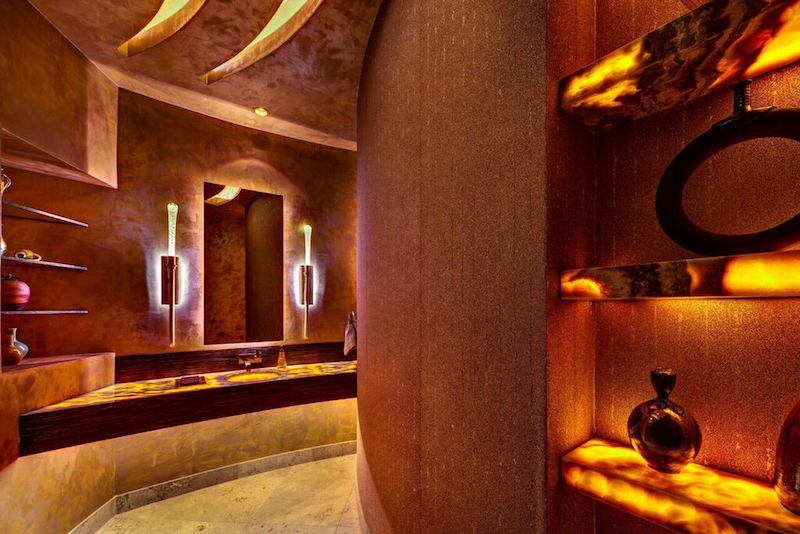They say even a king looks like a jester while sitting on the porcelain throne. And while that may be true, that doesn’t mean the bathroom itself can’t be fit for a king (or a queen).
But what constitutes "fit for a king" changes throughout the years. It can be tough to stay on top of the trends on a year-to-year basis, but the National Kitchen and Bath Association (NKBA) is a good place to turn for help. The NKBA has just released its 2016 Kitchen & Bath Design Trends Survey and it appears as though, similarly to the 2016 kitchen trends, bathrooms are becoming less flashy and more focused on the user’s experience. It is all about “stealth wealth,” places where consumers can “indulge privately, with an emphasis on comfort, personal statements, and style,” said Kathleen Donohue, CMKBD, CAPS, a remodeler from Oregon.
This online survey was conducted in late 2015 and incorporated the responses of more than 450 NKBA members. In addition to reporting the results for the full calendar year 2015, respondents were also asked to report on which styles and products were increasing, decreasing, or showing no change in popularity.
About half of the responding members said their average price for a bathroom was between $10,000 and $29,000. 31% said their average price for bathrooms was higher than $30,000.
Therefore, the trends identified in this study are most relevant for bathrooms in the $10,000 to $29,000 range, though they should not be taken as exclusively residing in that price range.
The following are 10 of the top bathroom design trends for 2016 to make anyone feel like royalty while in the bathroom.
1. Aging-in-place amenities
The number of people in the U.S. age 65 and older is expected to reach 88.5 million by 2050, so it shouldn’t come as a surprise to learn that aging-in-place amenities are gaining wider acceptance. Things like no threshold showers, grab bars, higher vanity heights, and chair-height toilets were all features reported by NKBA members. 57% of respondents specified comfort height toilets and 29% specified no-threshold showers. Comfort height toilets represent the largest expected increase for 2016 as 36% of members expect to do more.
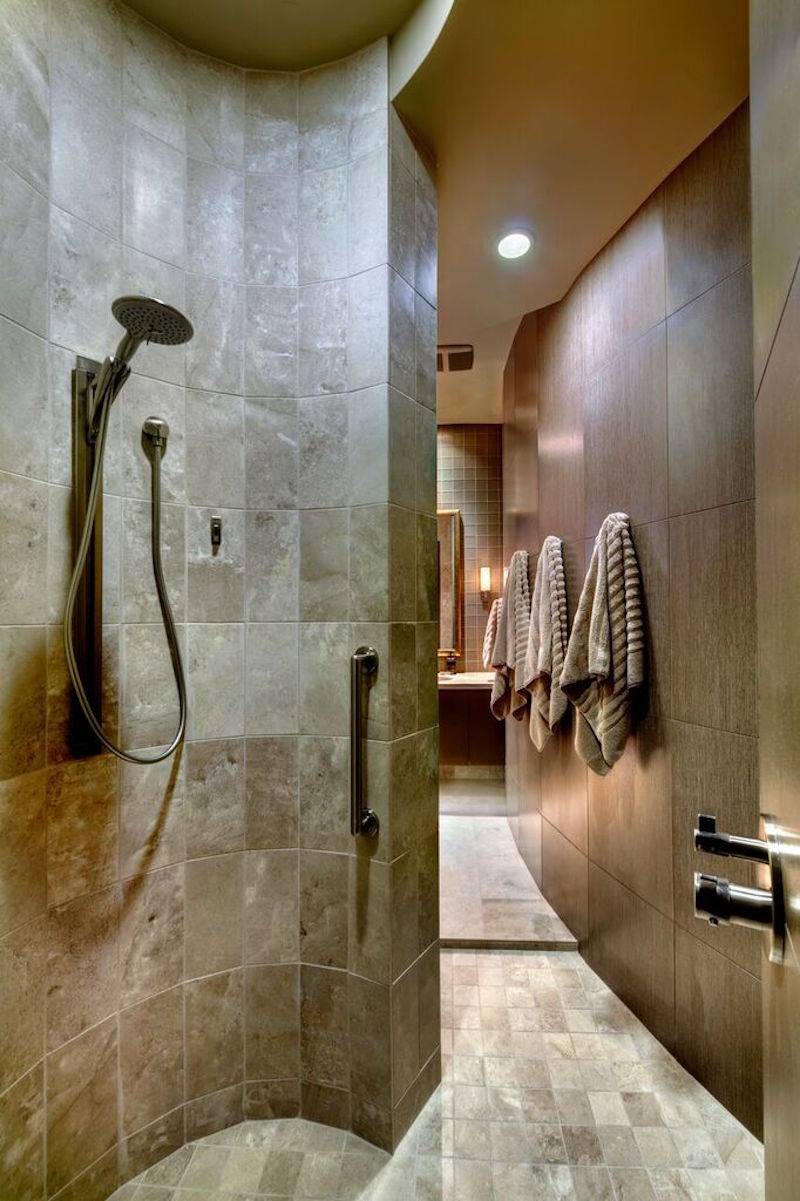 Photo Credit: William Lesch, Lori Carroll, Debra Gelety
Photo Credit: William Lesch, Lori Carroll, Debra Gelety
2. Transitional Style
The transitional style bathroom is widening the gap between the next most popular style of contemporary. NKBA members specified 79% transitional bathrooms in 2015 and just under 40% expect to do more in 2016. Although, the transitional style is less popular in the Southwest. Mass retailers and male designers seem more enamored with transitional style bathrooms than any other groups. Meanwhile, contemporary bathrooms are more common in the U.S. than in Canada.
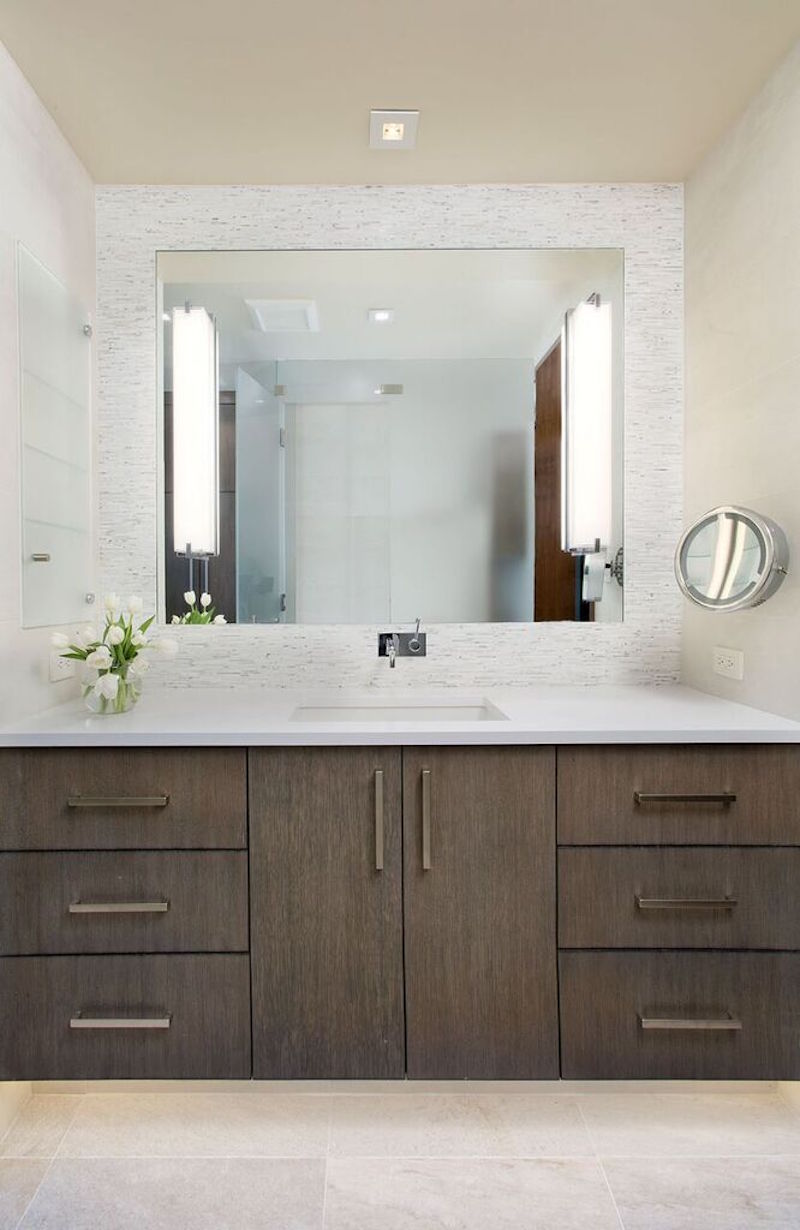 Photo Credit: Jeremy Swanson, Anne H. Grice
Photo Credit: Jeremy Swanson, Anne H. Grice
3. Remaining Neutral: Whites and grays rule the day
Want an idea of how dogs see the world? All you have to do is step inside a typical 2016 bathroom. Whites, off-whites, grays, and beiges are far and away the most popular colors and tones for bathrooms. 79% of NKBA members specified doing gray bathrooms in 2015, 77% specified white or off-white, and 65% specified beige. Correspondingly, members expect to do more of these colors to the tune of 53%, 38%, and 14% in 2016. Stepping away from the more anodyne color schemes you will find greens, blues, browns, and blacks, although these colors are not used nearly as often as the neutral tones.
 Photo Credit: Shelly Harrision, Jaye Gordon, Mark H. Haddad, AKBD
Photo Credit: Shelly Harrision, Jaye Gordon, Mark H. Haddad, AKBD
4. Open Shelving and Floating Vanities
While floating vanities and open shelving were not specified as much for storage options such as wood vanities, linen storage, and medicine cabinets, they do have the highest percentages of NKBA members who expect to do more of them in 2016 with 43% and 38% respectively. Toilet topper cabinets seem to be on their way out as only 6% of members expect to do more in 2016 and 24% expect to do less.
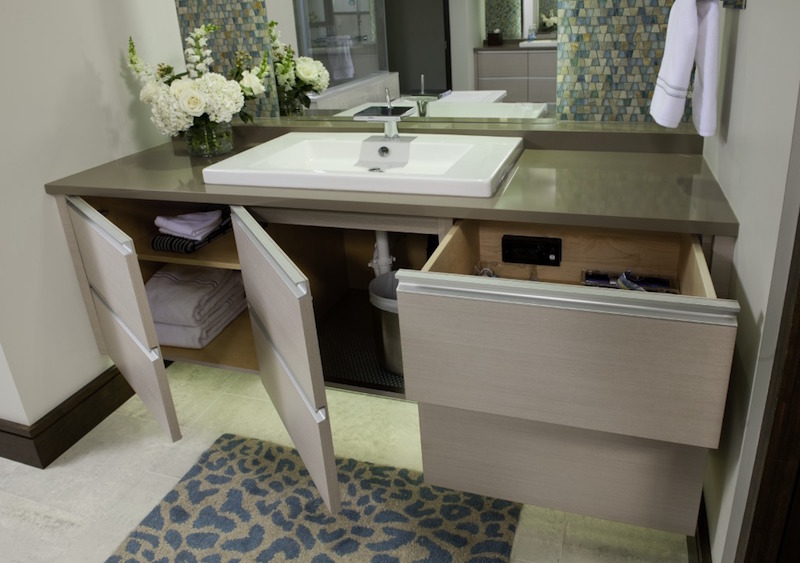 Photo Credit: Craig Thompson, Emily Miller CKD, Thomas S. Trzcinski
Photo Credit: Craig Thompson, Emily Miller CKD, Thomas S. Trzcinski
5. Built-In Storage
The biggest selling point of built-in storage is the fact that, since it is built right into the design of the bathroom, consumers don’t have to worry about a cluttered mess of hair and face products or shower caddies, blow dryers, and razors ruining the all-important clean lines of the transitional style they desire. Much of the built-in storage is hidden and works to keep the bathroom looking as clean as possible. Additionally, hidden and built in electrical outlets are increasing in popularity as well.
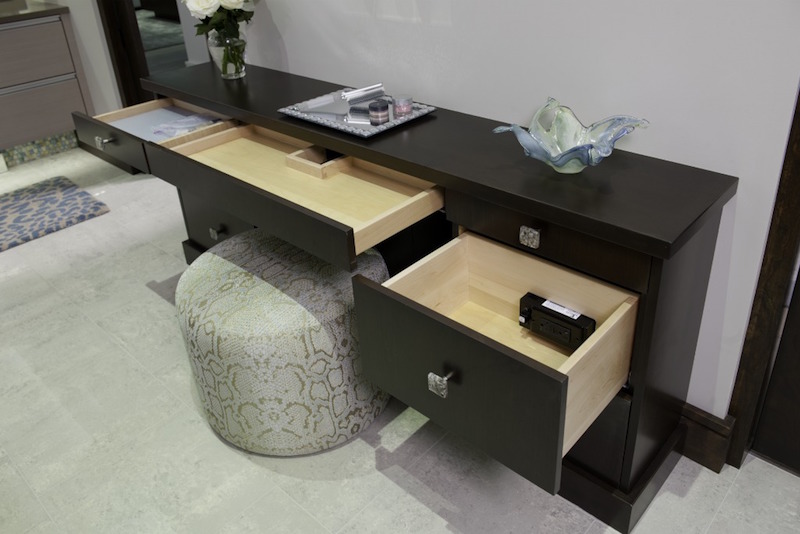 Photo Credit: Craig Thompson, Emily Miller CKD, Thomas S. Trzcinski
Photo Credit: Craig Thompson, Emily Miller CKD, Thomas S. Trzcinski
6. Sinks: Undermount are the most popular, trough sinks are emerging
The undermount sink continues to be the most popular style by a wide margin. But the trough sink is coming in as a dark house (no pun intended) in the race. 15% of NKBA members specified doing trough sinks in 2015, and that number is expected to increase slightly in 2016. Trough sinks fit in nicely in contemporary bathrooms as well as matching the clean lines of transitional bathrooms.
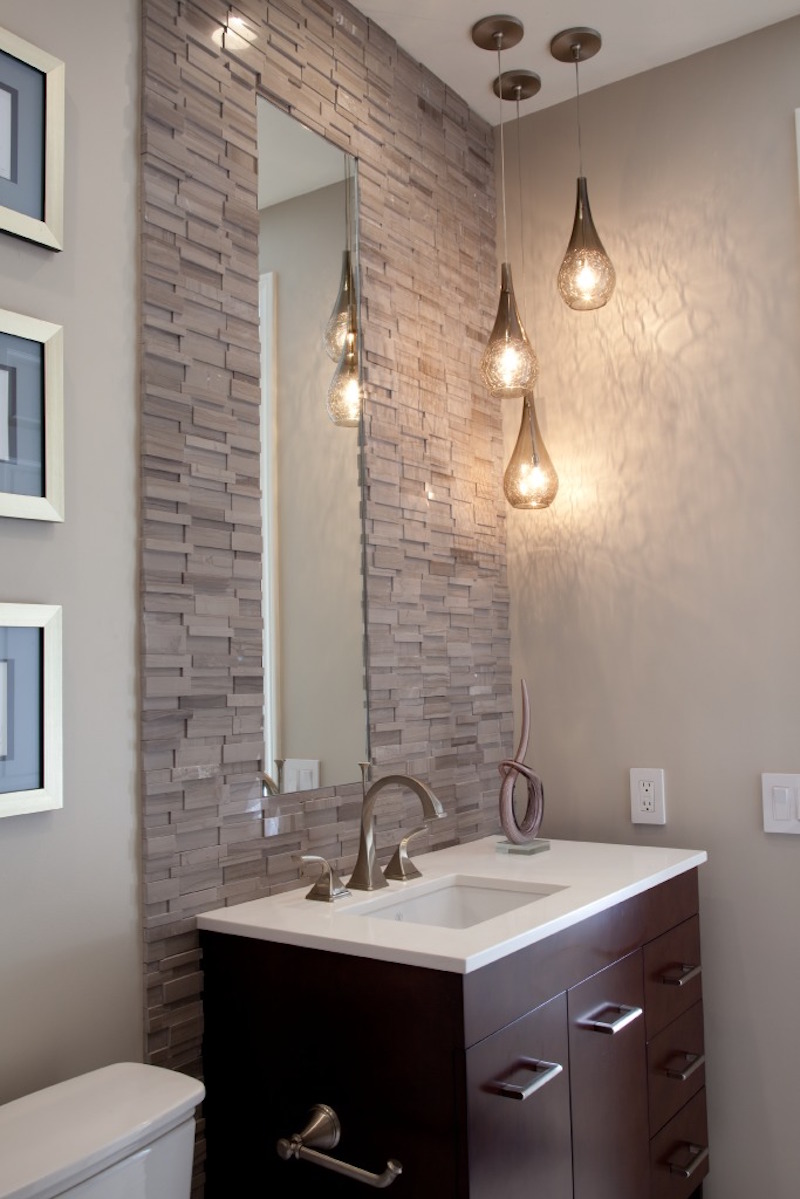 Photo Credit: Gail Owens, Michelle Strausbaugh, CKD, CBD
Photo Credit: Gail Owens, Michelle Strausbaugh, CKD, CBD
7. Freestanding Tubs
If it is a master bathroom that is being worked on, a freestanding tub seems to be the most popular option. 67% of NKBA members specified a free standing standard tub and 39% expect to do more in 2016, as opposed to only 8% who expect to do less. In addition, soaking tubs were specified 61% for 2015 and 32% of members expect to do more in 2016.
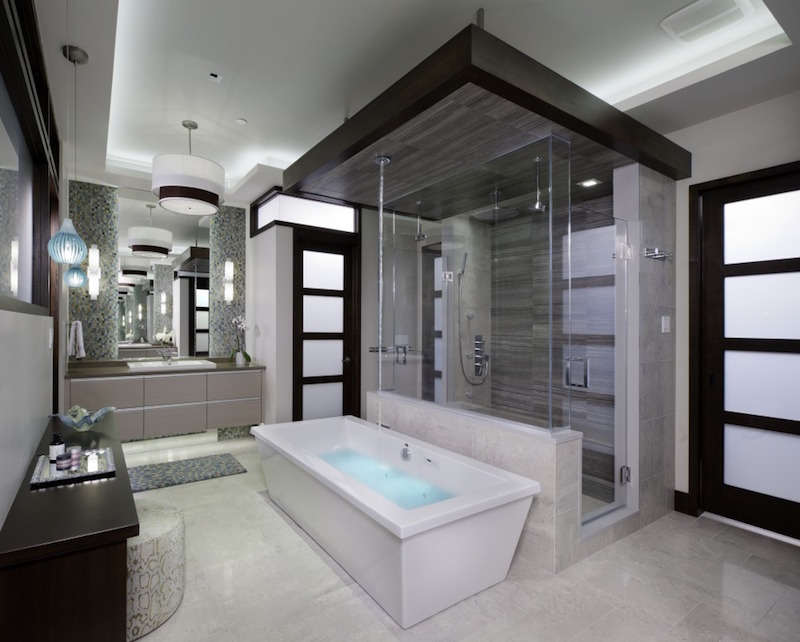 Photo Credit: Photo Credit: Craig Thompson, Emily Miller CKD, Thomas S. Trzcinski
Photo Credit: Photo Credit: Craig Thompson, Emily Miller CKD, Thomas S. Trzcinski
8. Tricked-out showers: Lights, seats, and hand showers
Showers are a great place to get some thinking done, but that is not to say they can’t be improved upon. Look at the Auguste Rodin sculpture The Thinker, and what do you notice? He is sitting down. No wonder more showers are incorporating amenities such as built-in seats and benches to go along with lights and a hand shower that works in tandem with the mounted showerhead. 59% of members specified a hand shower in addition to a mounted showerhead and 36% of respondents expect to do more in 2016.
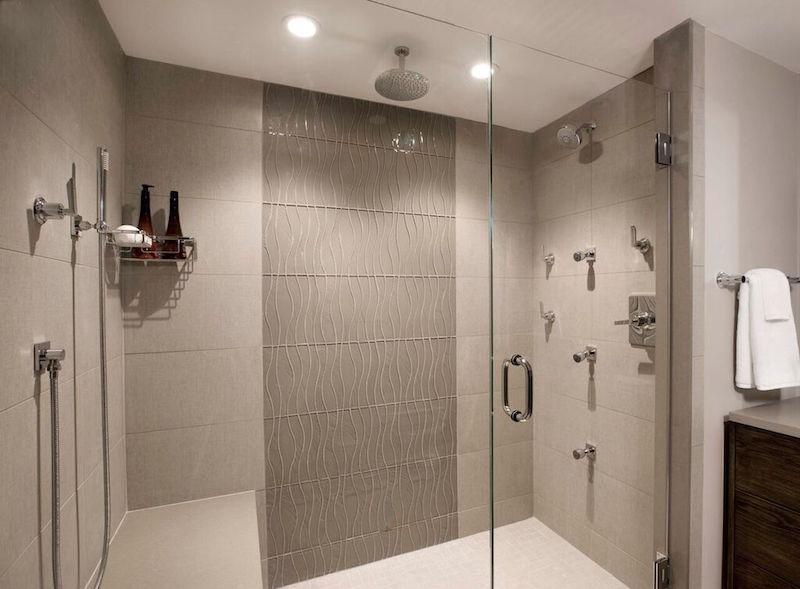 Photo Credit: Shelly Harrision, Jaye Gordon, Mark H. Haddad, AKBD
Photo Credit: Shelly Harrision, Jaye Gordon, Mark H. Haddad, AKBD
9. Polished chrome finishes
80% of NKBA members specified polish chrome finishes for faucets in 2015 and 35% expect to do more in 2016. The next most popular finishes were satin nickel, brushed nickel, and bronze/oil-rubbed bronze. Although, 22% of respondents expect to do less bronze/oil-rubbed bronze in 2016, the biggest decline for any finish.
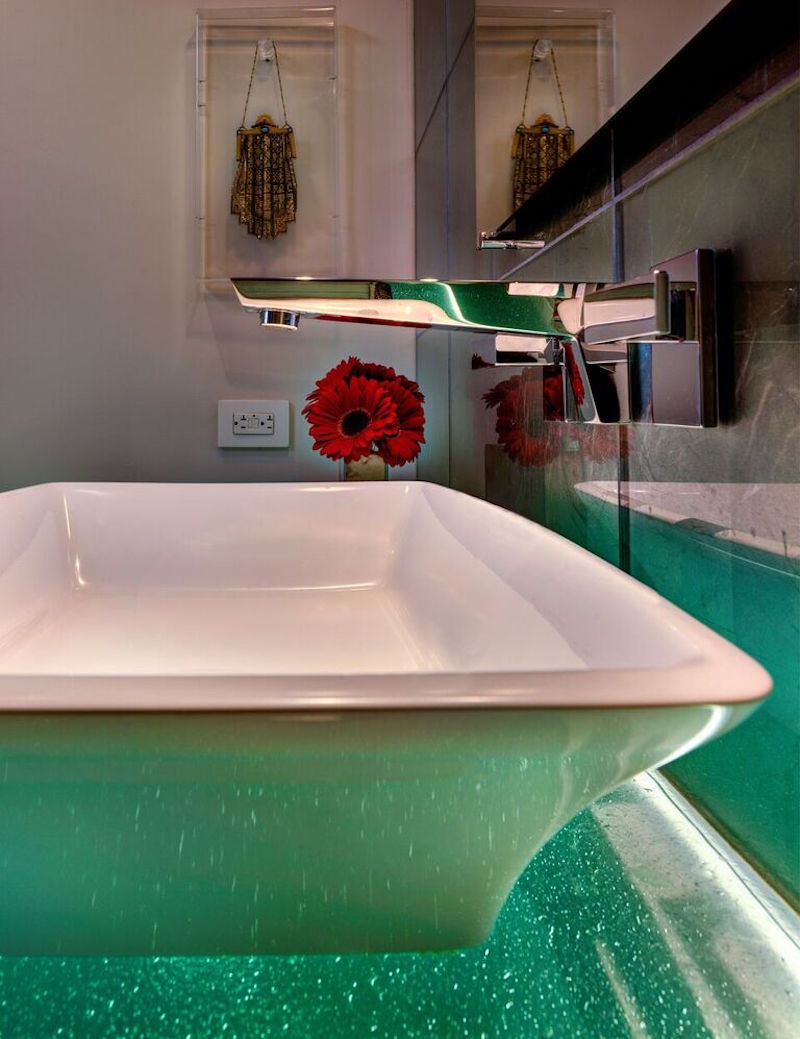 Photo Credit: Photo Credit: William Lesch, Lori Carroll, Debra Gelety
Photo Credit: Photo Credit: William Lesch, Lori Carroll, Debra Gelety
10. Personal luxuries
Now, these are the real bits and bobs that turn a bathroom into a room fit for a king. Amenities such as electric radiant floor heating, a TV in the mirror, steam showers, smart toilet seats, humidity sensing fans, coffee bars and wet bars, and towel warmers were all specified by at least 25% of NKBA members in 2015.
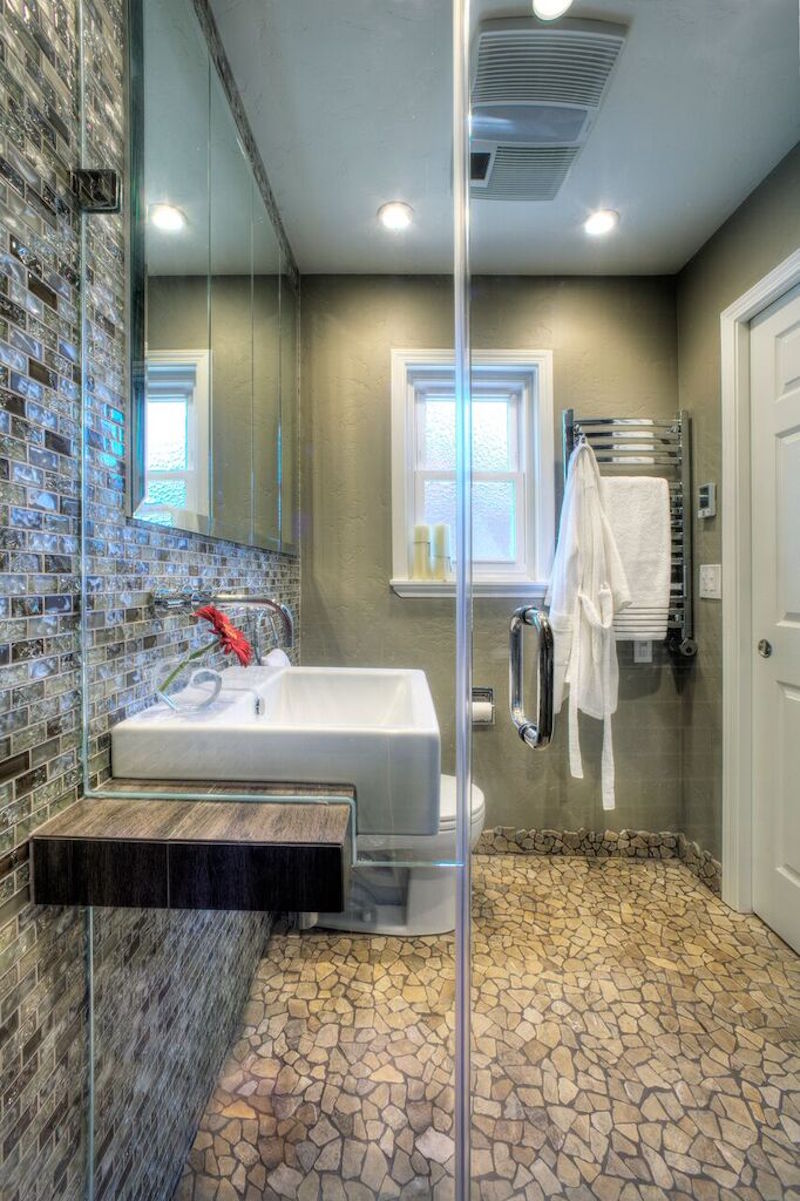 Photo Credit: Dave Adams, Cindy Garten
Photo Credit: Dave Adams, Cindy Garten
Related Stories
| Aug 11, 2010
New website highlights government tax incentives for large commercial buildings
Energy Retrofit Group (ERG), the subsidiary of 40-year-old, award-winning Adache Group Architects, Inc., has announced the creation of their new energy conservation web site: www.energy-rg.com.
| Aug 11, 2010
Gensler, HOK, HDR among the nation's leading reconstruction design firms, according to BD+C's Giants 300 report
A ranking of the Top 100 Reconstruction Design Firms based on Building Design+Construction's 2009 Giants 300 survey. For more Giants 300 rankings, visit http://www.BDCnetwork.com/Giants
| Aug 11, 2010
Parsons Brinckerhoff, Dewberry among nation's largest multifamily design firms, according to BD+C's Giants 300 report
A ranking of the Top 75 Multifamily Design Firms based on Building Design+Construction's 2009 Giants 300 survey. For more Giants 300 rankings, visit /giants
| Aug 11, 2010
ASHRAE introduces building energy label prototype
Most of us know the fuel efficiency of our cars, but what about our buildings? ASHRAE is working to change that, moving one step closer today to introducing its building energy labeling program with release of a prototype label at its 2009 Annual Conference in Louisville, Ky.
| Aug 11, 2010
RMJM unveils design details for $1B green development in Turkey
International architecture company RMJM today announced details of the $1 billion Varyap Meridian development it is designing in Istanbul’s new residential and business district, which will be one of the "greenest" projects in Turkey. The luxury 372,000-square-meter development on a site totalling 107,000 square meters will be located in the Atasehir district of Istanbul, which the Turkish government intends to transform into the country’s new financial district and business center.
| Aug 11, 2010
Urban Land Institute honors five 'outstanding' developments in Europe, Middle East, and Africa
Five outstanding developments have been selected as winners of the Urban Land Institute (ULI) 2009 Awards for Excellence: Europe, Middle East, and Africa (EMEA) competition. This year, the competition also included the announcement of two special award winners. The Awards for Excellence competition is widely regarded as the land use industry’s most prestigious recognition program.
| Aug 11, 2010
10 tips for mitigating influenza in buildings
Adopting simple, common-sense measures and proper maintenance protocols can help mitigate the spread of influenza in buildings. In addition, there are system upgrades that can be performed to further mitigate risks. Trane Commercial Systems offers 10 tips to consider during the cold and flu season.
| Aug 11, 2010
Brad Pitt’s foundation unveils 14 duplex designs for New Orleans’ Lower 9th Ward
Gehry Partners, William McDonough + Partners, and BNIM are among 14 architecture firms commissioned by Brad Pitt's Make It Right foundation to develop duplex housing concepts specifically for rebuilding the Lower 9th Ward in New Orleans. All 14 concepts were released yesterday.
| Aug 11, 2010
NAVFAC releases guidelines for sustainable reconstruction of Navy facilities
The guidelines provide specific guidance for installation commanders, assessment teams, estimators, programmers and building designers for identifying the sustainable opportunities, synergies, strategies, features and benefits for improving installations following a disaster instead of simply repairing or replacing them as they were prior to the disaster.
| Aug 11, 2010
MulvannyG2 Architecture wins “Best Mixed-use Development—Future” award
MulvannyG2 Architecture’s project, Aquapearl in Taipei, Taiwan, was honored by Cityscape Asia 2009 as the “Best Mixed-use Development -Future” on May 20, 2009 at the annual conference in Singapore.


